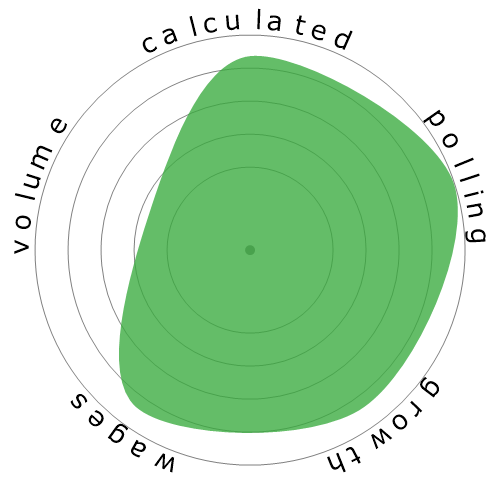Veterinarians
Where Would You Like to Go Next?
Or, Explore This Profession in Greater Detail...


What does this snowflake show?
What's this?
We rate jobs using four factors. These are:
- Chance of being automated
- Job growth
- Wages
- Volume of available positions
These are some key things to think about when job hunting.
People also viewed
Calculated automation risk
Minimal Risk (0-20%): Occupations in this category have a low probability of being automated, as they typically demand complex problem-solving, creativity, strong interpersonal skills, and a high degree of manual dexterity. These jobs often involve intricate hand movements and precise coordination, making it difficult for machines to replicate the required tasks.
More information on what this score is, and how it is calculated is available here.
User poll
Our visitors have voted there's a low chance this occupation will be automated. This assessment is further supported by the calculated automation risk level, which estimates 7% chance of automation.
What do you think the risk of automation is?
What is the likelihood that Veterinarians will be replaced by robots or artificial intelligence within the next 20 years?
Sentiment
The following graph is shown where there are enough votes to produce meaningful data. It displays user poll results over time, providing a clear indication of sentiment trends.
Sentiment over time (quarterly)
Sentiment over time (yearly)
Growth
The number of 'Veterinarians' job openings is expected to rise 19.1% by 2033
Total employment, and estimated job openings
Updated projections are due 09-2025.
Wages
In 2023, the median annual wage for 'Veterinarians' was $119,100, or $57 per hour
'Veterinarians' were paid 147.8% higher than the national median wage, which stood at $48,060
Wages over time
Volume
As of 2023 there were 78,220 people employed as 'Veterinarians' within the United States.
This represents around 0.05% of the employed workforce across the country
Put another way, around 1 in 1 thousand people are employed as 'Veterinarians'.
Job description
Diagnose, treat, or research diseases and injuries of animals. Includes veterinarians who conduct research and development, inspect livestock, or care for pets and companion animals.
SOC Code: 29-1131.00
Comments (56)
In conclusion, STOP BEING LAZY! STUDY, WORK, and use AI to help in minimal cases, not in every aspect of your life.
Moving on. When you mention determining the age of a stray dog, you don't necessarily need to know their exact age to provide treatment or make certain diagnoses. As for your comment about "probably not knowing how much to feed each one," AI and robotics are astonishingly accurate in this aspect. They'll likely always have more data and accuracy than we do. And the notion that "they can't bathe them because they are robots"? Well, we've had waterproof robots for quite some time now.
So, yes, it seems full automation is on the horizon!
Those apps are just going to give rise to pet owners who doubt the doctor's diagnosis, and they are going to make irresponsible decisions thinking that they can treat their pets' ailments. In fact, it has already happened many times.
I work at a veterinary clinic, and there have been many "self-proclaimed veterinarians" with a degree in Google misdiagnosing their pets and giving harmful medications, such as feeding paracetamol to their dogs with high fever.
The app should be restricted to be used by licensed veterinarians and veterinary students, so as to prevent any misinformed or uneducated pet owners from misinterpreting or abusing the information from the apps.
In addition, some owners may have received the correct diagnosis from the app, but may proceed with the wrong treatment. A rise in antibiotic resistance will be observed when owners simply use antibiotics without understanding its consequences.
In fact, this is already happening without the involvement of AI. There are many online sellers selling antibiotics, and even some irresponsible people selling sedatives online, labeling such medications as "cat/dog fever medication" or "cat parvovirus medication".
Reply to comment